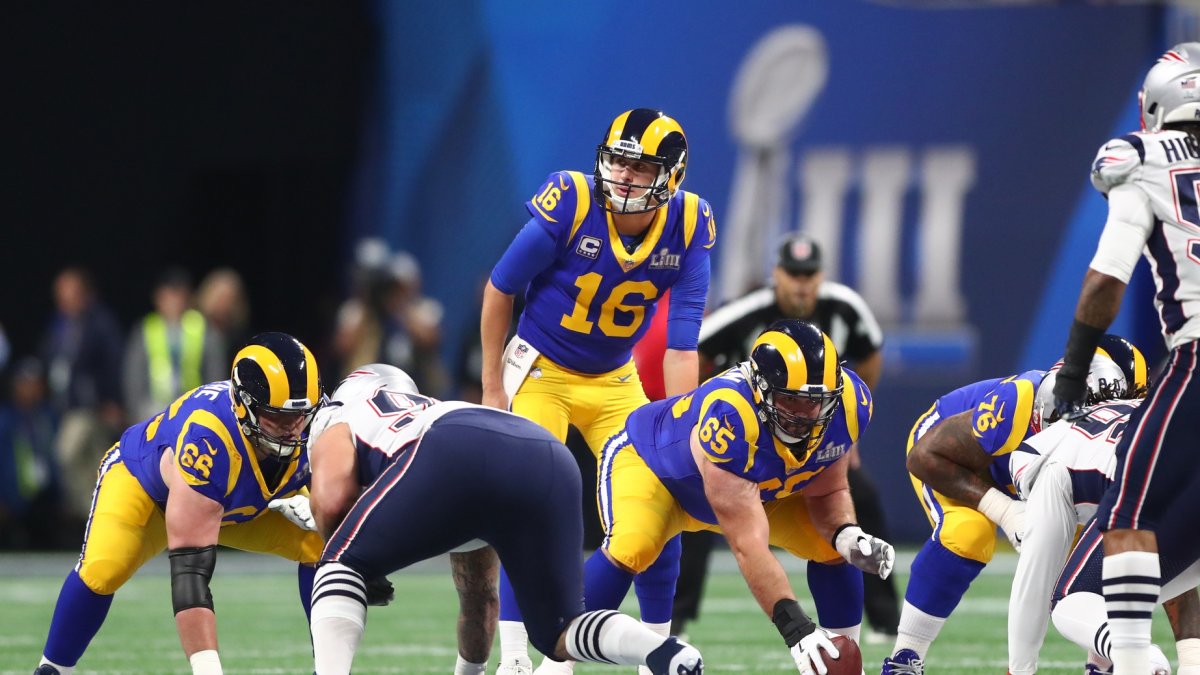The Los Angeles Rams suffered a disappointing slump last season after coming up short in Super Bowl 53, but if the Rams hope to get back there in 2020, they need to fix their ailing offensive line.
The Rams have been a fascinating case study in the importance of blocking and offensive line play over the past few seasons, and they have bounced all over the spectrum in that time span. When Jeff Fisher was the head coach, the Rams finished the 2016 season with the 27th-ranked offensive line according to PFF grade. They then jumped to No. 6 overall over the next two seasons, and at one point even had the best run-blocking line in football, creating a swell of support for Todd Gurley to win an MVP award. Last season, it all came crashing back down to earth, and they finished the year with only the Miami Dolphins ranked lower.
[Editor’s note: Subscribe to PFF ELITE today to gain access to PFF’s Premium Stats and new Player Grades experience in addition to the 2020 NFL Draft Guide, 2020 Fantasy Rookie Scouting Report, PFF Greenline, all of PFF’s premium article content and more.]
I’m not saying that the success the Rams enjoyed on their Super Bowl run was entirely manufactured by the offensive line — though the Gurley-for-MVP hype may have been — but the colossal improvement from the unit did massively improve the platform for this offense to function and thrive.
Without capable blocking, Jared Goff looked lost as a rookie, earning an overall PFF grade of 42.9 and generating a 47.5 passer rating under pressure. The following season, he was still bad under pressure — as he has been every season of his career — but he saw significantly less of that pressure and everything else was functioning better, so he was able to take big strides forward.
Offensive line play isn’t necessarily about how good the unit is but about how bad it is. By the end of September last season, I tweeted that the unit would prevent them from returning to the Super Bowl unless it improved — it didn’t.
The Rams can't win a Super Bowl with the OL playing at its current rate.
— Sam Monson (@PFF_Sam) September 30, 2019
Exclusive content for premium subscribers

WANT TO KEEP READING?
Dominate Fantasy Football & Betting with AI-Powered Data & Tools Trusted By All 32 Teams
Already have a subscription? Log in



 © 2025 PFF - all rights reserved.
© 2025 PFF - all rights reserved.